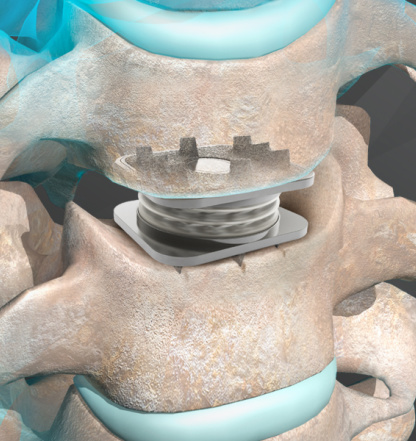If you are dealing with pain after spine surgery, possibly due to a failed back surgery, you are not alone. Too many people suffer from back pain for years and undergo surgery only to find they are still dealing with pain and symptoms.
If you are dealing with pain after spine surgery, possibly due to a failed back surgery, you are not alone. Too many people suffer from back pain for years and undergo surgery only to find they are still dealing with pain and symptoms. In some cases, failed back surgery syndrome (FBSS) is the return of the same pain and symptoms, and in others, it can be new symptoms entirely.
A failed back surgery can be so distressing because it not only means you are still managing pain, but it can also be hard to diagnose. The term FBSS actually describes a broad range of issues that can arise from an unsuccessful back surgery. If you are dealing with pain and symptoms that go beyond normal postsurgical discomfort and you believe your provider is not taking your condition seriously, it is critical to find a treatment provider who understands failed back surgery treatment.
With decades of combined experience, Dr. James L. Chappuis and the expert team at Spine Center Atlanta are the leaders in failed back surgery treatment. At our state-of-the-art diagnostic center we perform an exhaustive evaluation to positively identify the underlying cause of pain after a spine procedure. The following guide can help you better understand some of the most common causes of a failed back surgery.
We’re here to help and we encourage you to reach out with any questions or if you are ready to start your pain relief journey with us.
These Are the Most Common Contributors To Failed Back Surgery Syndrome
Each case of failed back surgery syndrome is different. There can even be multiple causes for a single patient. This is why expert diagnosis is so important.
Some of the most frequent FBSS diagnoses are related to:
- Misdiagnosis of the underlying condition: Spine surgery can be a highly effective method for long-term pain relief, but it is critical for the surgeon to positively identify the underlying source of symptoms. As just one example, many cases of leg pain and sciatica-like symptoms are often misattributed to a herniated disc when sacroiliac joint disease is the real cause. There can even be a herniated disc present, but unless it has been confirmed as the cause of pain by diagnostic testing such as a nerve block, operating on the disc may not relieve symptoms.
- Adjacent segment disease: Another source of FBSS can be due to an initial procedure causing spinal instability and symptoms in the spinal segment immediately below. This condition, known as adjacent segment disease, is especially common after spinal fusion surgery, where the stress from the fused vertebral segment is transferred to an adjacent region. While it is not always possible to completely prevent this, committing to physical therapy and practicing a healthy lifestyle that includes good posture can help improve outcomes.
- Surgical errors and implant rejection: In some cases, a problem with the procedure itself can be the source of failed back surgery. Examples include the surgeon removing too much or too little of the tissue or accidentally cutting a nerve or tissue that contains spinal fluid. Additionally, if an implant or hardware for spinal fusion surgery is not placed properly, or it causes an infection, it can result in debilitating pain and mobility problems after the procedure. In these cases, a followup procedure can become more likely.
- Scar tissue: Whether due to surgical error or the normal recovery process, scar tissue formation can be part of a spine procedure. In some cases, this scar tissue can disrupt the function of adjacent nerves, leading to new symptoms or similar back pain and dysfunction as the original condition.
- Reinjury due to recovery and rehabilitation issues: Another all too frequent cause of failed back surgery happens when the back surgery does not heal properly. This can happen if patients rush back into action too quickly, do not follow postoperative instructions, or do not receive sufficient physical therapy and rehabilitation in the aftermath of the procedure.
There are many other potential causes of a failed back surgery. In some cases, stress and anxiety in the aftermath of the procedure can worsen pain. This can be particularly difficult to untangle if you are dealing with a case of failed back surgery that is worsening your mental health picture.
Spine Center Atlanta is Your Failed Back Surgery Treatment Experts
Developing an effective treatment plan for a failed back surgery starts with a thorough diagnosis. You should expect a full review of your medical history and previous surgical orders, a physical examination, questions about your symptoms, new imagery such as an MRI, and diagnostic testing such as a nerve block to determine the true cause of your pain after back surgery.
In many non-emergency cases, treatment will consist of a personalized combination of physical therapy, pain management interventions, and alternative therapies such as massage and acupuncture. The right combination of treatments depends on your unique needs and diagnosis. Many patients benefit from wellness therapy, such as nutritional counseling, and behavioral health treatments.
A follow-up or revision surgery is generally seen as a last resort unless there is an immediate issue such as implant rejection or surgical error. In any event, proper diagnosis becomes even more important for FBSS to ensure that any procedure achieves a positive outcome.
At Spine Center Atlanta, our highly experienced team is fully committed to a fully personalized treatment plan for each patient. Whether you are dealing with adjacent segment disease, failed spinal fusion or any other cause of FBSS, we’ll work with you every step of the way to help you achieve the lasting relief you deserve.
Contact us today to learn more and schedule your initial appointment.






























